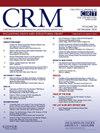Predictors and prognosis of progression of aortic valve stenosis in patients hospitalized with heart failure with mildly reduced ejection fraction
IF 1.9
Q3 CARDIAC & CARDIOVASCULAR SYSTEMS
引用次数: 0
Abstract
Background
Although aortic valve stenosis (AS) is a recognized predictor of outcomes in heart failure (HF), limited data is available concerning predictors for and the prognostic value of progressive AS in patients with HF with mildly reduced ejection fraction (HFmrEF).
Methods
From 2016 to 2022, consecutive patients hospitalized with HFmrEF at one institution were retrospectively included. AS progression was assessed during follow-up echocardiography and patients with and without progression were compared regarding the primary endpoint long-term all-cause mortality at 30 months (median follow-up) using Kaplan-Meier and Cox regression analyses. Key secondary endpoint was rehospitalization for worsening HF. Predictors of AS progression were investigated using logistic regression analyses.
Results
From 603 included patients hospitalized with HFmrEF, progressive AS was observed in 55 patients, which was associated with an increased risk of long-term all-cause mortality (HR = 1.697; 95 % CI 1.094–2.633; p = 0.018), but not with HF-related rehospitalization (p = 0.585). The association with long-term all-cause mortality was still evident after multivariable adjustment (p = 0.044). Independent predictors of AS progression were older age at baseline (HR = 1.033; 95 % CI 1.001–1.065; p = 0.042; per year increase), diabetes mellitus (HR = 1.851; 95 % CI 1.019–3.363; p = 0.043) and baseline AS severity (mild AS: HR = 3.923; 95 % CI = 1.605–9.588; p = 0.003, moderate AS: HR = 6.122; 95 % CI 2.587–14.488; p = 0.001).
Conclusion
AS progression in HFmrEF patients is independently associated with impaired long-term survival.
clinicaltrials.gov identifier: NCT05603390, ethical approval code: 2022-818 (Medical Ethics Committee II of the Medical Faculty Mannheim, University of Heidelberg, Germany).
伴有轻度射血分数降低的心力衰竭住院患者主动脉瓣狭窄进展的预测因素和预后。
背景:虽然主动脉瓣狭窄(AS)是心力衰竭(HF)预后的公认预测因素,但关于进行性AS伴轻度射血分数降低(HFmrEF)的心力衰竭患者的预测因素和预后价值的数据有限。方法:回顾性分析2016年至2022年在一所医院连续住院的HFmrEF患者。在随访超声心动图中评估AS进展,并使用Kaplan-Meier和Cox回归分析比较有进展和无进展患者在30个月(中位随访)的主要终点长期全因死亡率。关键的次要终点是心衰恶化的再住院。采用logistic回归分析对AS进展的预测因素进行调查。结果:在603例HFmrEF住院患者中,55例患者观察到进行性AS,这与长期全因死亡风险增加相关(HR = 1.697;95% ci 1.094-2.633;p = 0.018),但与hf相关的再住院无关(p = 0.585)。多变量校正后,与长期全因死亡率的相关性仍然很明显(p = 0.044)。AS进展的独立预测因子为基线年龄较大(HR = 1.033;95% ci 1.001-1.065;p = 0.042;糖尿病(HR = 1.851;95% ci 1.019-3.363;p = 0.043)和基线AS严重程度(轻度AS: HR = 3.923;95% ci = 1.605-9.588;p = 0.003,中度AS: HR = 6.122;95% ci 2.587-14.488;p = 0.001)。结论:HFmrEF患者的AS进展与长期生存受损独立相关。临床试验:政府标识符:NCT05603390,伦理审批代码:2022-818(德国海德堡大学曼海姆医学院医学伦理委员会II)。
本文章由计算机程序翻译,如有差异,请以英文原文为准。
求助全文
约1分钟内获得全文
求助全文
来源期刊

Cardiovascular Revascularization Medicine
CARDIAC & CARDIOVASCULAR SYSTEMS-
CiteScore
3.30
自引率
5.90%
发文量
687
审稿时长
36 days
期刊介绍:
Cardiovascular Revascularization Medicine (CRM) is an international and multidisciplinary journal that publishes original laboratory and clinical investigations related to revascularization therapies in cardiovascular medicine. Cardiovascular Revascularization Medicine publishes articles related to preclinical work and molecular interventions, including angiogenesis, cell therapy, pharmacological interventions, restenosis management, and prevention, including experiments conducted in human subjects, in laboratory animals, and in vitro. Specific areas of interest include percutaneous angioplasty in coronary and peripheral arteries, intervention in structural heart disease, cardiovascular surgery, etc.
 求助内容:
求助内容: 应助结果提醒方式:
应助结果提醒方式:


